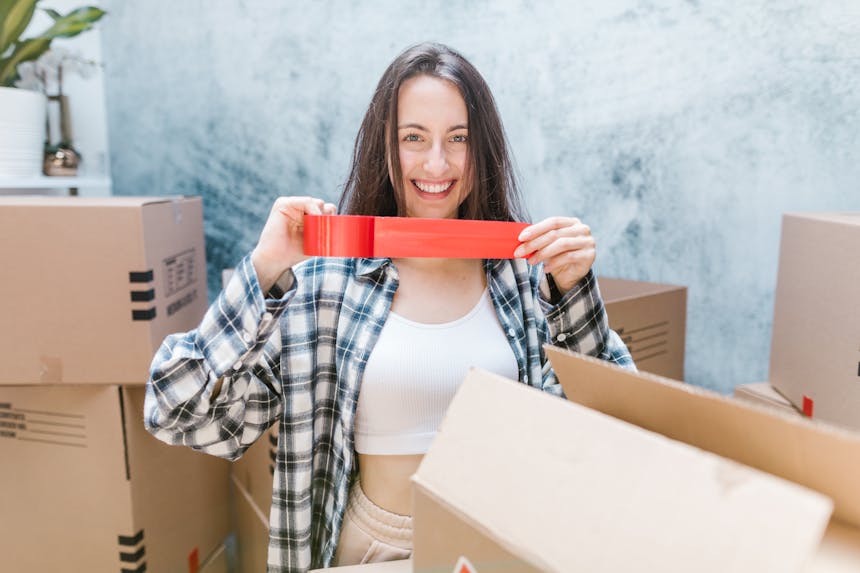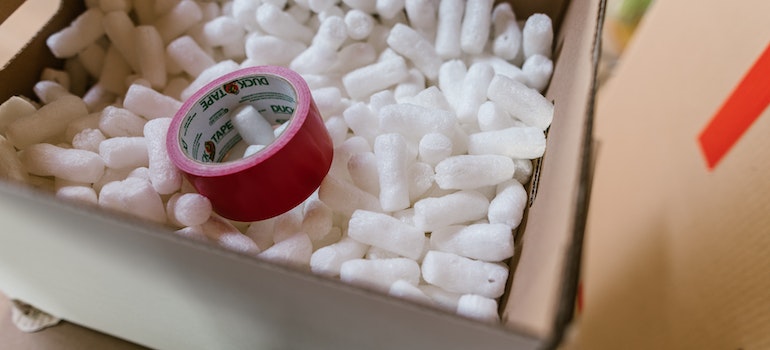How to make packing cost-effective
get a quote
Packing for your upcoming relocation doesn’t have to drain your budget. With the right strategies, you can significantly cut costs while protecting your belongings. Whether you’re moving across town or the country, thoughtful planning and creative problem-solving can help you stay within your financial limits without compromising on efficiency. If your home feels cluttered during the packing process, temporary storage Seattle offers is a great solution to keep your space organized while preparing for the move. With that in mind, let’s dive into how to make packing cost-effective and avoid all the unnecessary expenses.
Streamline your packing with decluttering
The more you pack, the more you spend on materials, time, and transportation. Reducing what you take with you is the most straightforward way to save money. Start with a full sweep of your belongings, assessing what is truly necessary for your new home.
Separate your items into these categories: keep, donate, sell, or discard. Selling unwanted items through online platforms or garage sales can even generate extra funds to cover moving costs. For sentimental or seasonal items you want to keep but don’t need right away, Kirkland self storage provides secure options for temporary holding.

Leverage everyday items as packing supplies
Packing materials like boxes, bubble wrap, and tape often account for a significant portion of moving expenses. However, many household items can double as packing materials, saving you money and reducing waste.
- Use towels, blankets, or even sweaters to wrap delicate items.
- Store small items in containers you already own, such as baskets, bins, or reusable bags.
- Transport books, electronics, or shoes in rolling suitcases to avoid buying extra boxes.
For larger moving boxes, ask local businesses for spares. Many grocery and retail stores have sturdy, unused boxes they’re happy to give away. If you need additional packing options, storage pods in Seattle can be a flexible, cost-efficient solution for storing items while packing at your own pace.
Invest where it counts
While saving on packing materials is essential, some investments are worth making to protect your belongings. Durable tape, quality boxes, and clear markers ensure everything arrives safely at your new destination. Weak tape or flimsy boxes can lead to damaged items, costing more to replace in the long run.
If you’re moving a large household, buying supplies in bulk can lead to significant savings. Consider:
- Taping material and boxes in large quantities.
- Bubble wrap rolls instead of individual sheets.
- Pre-packaged moving kits, which often include all essential supplies.
Though the initial cost may seem high, bulk purchases lower the per-unit price, making them cost-effective for larger moves. Finally, label boxes clearly with their contents and destination room. This small step saves time during unpacking and reduces the likelihood of misplaced items, which could lead to unnecessary stress and expenses later.

Organize and optimize your packing
Efficient packing techniques reduce the number of boxes needed and cut transportation costs. Packing poorly often leads to wasted space, which translates to higher expenses. To optimize packing:
- Use smaller boxes for heavier items like books and larger boxes for lighter items like pillows or bedding.
- Fill all gaps in boxes with soft items such as socks or towels to prevent shifting.
- Group items by category or room for easier unpacking.
When timelines are tight, affordable solutions like Seattle mini storage provide a secure place for belongings you may not need immediately, allowing you to focus on the essentials.
Maximize value from unwanted items
Moving is the perfect opportunity to monetize unused belongings. Items in good condition can be sold through local marketplaces or online platforms, putting extra cash in your pocket. Electronics, furniture, and gently used clothing often sell quickly.
For items that aren’t suitable for sale but still have life left in them, donate to local charities. Many organizations offer free pickup services, saving time while supporting a good cause. Decluttering not only reduces your moving load but also provides financial or community benefits.
Timing your purchases to save money
The timing of your purchases can have a significant impact on your moving costs. Planning allows you to take advantage of sales or discounts on packing supplies, rather than buying everything last minute at full price. For example, office supply stores often offer seasonal discounts on boxes and tape, while home improvement stores may run promotions on storage items.
Avoid shopping during peak moving seasons, such as summer, when prices for supplies tend to be higher due to demand. If possible, stock up on essentials during off-peak times or watch for clearance sales.

Packing tips recap
To ensure your packing process is both cost-effective and organized, focus on strategies that reduce expenses, maximize efficiency, and protect your belongings throughout the move. Here’s a simple packing checklist to help you stay organized:
- Minimize what you move by decluttering thoroughly.
- Use household items like towels and blankets as packing materials.
- Source free boxes from local businesses or online communities.
- Invest in durable supplies like tape and quality boxes.
- Pack efficiently to maximize space and reduce the number of boxes needed.
- Sell or donate items you no longer need to offset moving expenses.
These simple steps can significantly lower your packing costs while keeping everything organized. A well-thought-out approach ensures a smoother move and fewer unexpected expenses.
Smart packing saves money
Packing on a budget doesn’t mean cutting corners on safety or organization. With careful planning, creative use of materials, and strategic decluttering, it’s possible to make packing cost-effective while ensuring your belongings are well-protected significantly. Through smart decision-making and a focus on what truly matters, you’ll be able to pack cost-effectively and set the stage for a fresh start in your new Seattle home!
